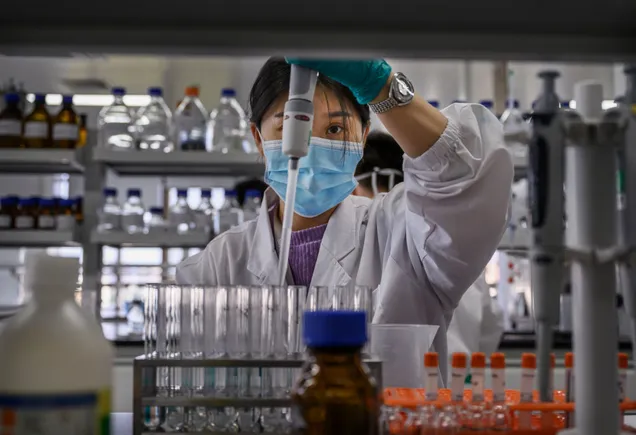The United States Biotechnology Sector at Risk of Losing Ground to China
The biotechnology sector in the United States faces a critical challenge in maintaining its competitive edge over China, according to a recent report issued by a bipartisan commission. The report emphasizes the need for increased funding and policy support from the federal government to prevent the U.S. from falling behind in biotech innovation.
The commission recommends a minimum investment of $15 billion over the next five years to enhance the country’s biotech capabilities. It also calls for a more proactive government strategy, including the establishment of a National Biotechnology Coordination Office within the White House.
China has emerged as a formidable competitor in the biotechnology space, with strategic investments and a focus on technological advancements over the past two decades. The commission warns that the U.S. must take swift action within the next three years to avoid being surpassed by China in biotech innovation.
The report, authored by the National Security Commission on Emerging Biotechnology, highlights the urgency of the situation and the need for legislative action to support the growth of the U.S. biotechnology sector. The commission’s recommendations aim to mirror the success of previous legislation, such as the CHIPS Act, which focused on semiconductor manufacturing and research.
Senator Todd Young, the chair of the commission, stresses the importance of biotechnology in the ongoing competition between the U.S. and China. He points to China’s rapid advancements in biotech capabilities, fueled by government policies and the adoption of artificial intelligence tools.
To counter China’s growing influence in the biotech industry, the commission proposes several initiatives, including the establishment of an Independence Investment Fund to support new startups and the development of bioindustrial manufacturing facilities. Additionally, outbound investment rules are recommended to prevent U.S. capital from supporting Chinese biotech ventures with national security implications.
The commission’s call for increased investment in biotechnology comes at a time when the U.S. government has implemented budget cuts and layoffs in research and regulatory agencies overseeing the sector. Despite these challenges, the commission urges the U.S. to leverage its open innovation ecosystem to attract top scientific talent and maintain its competitive edge.
As the U.S. navigates its biotech strategy, industry stakeholders are closely monitoring potential policy changes, including sector-specific tariffs that could impact pharmaceutical companies. The Trump administration’s focus on promoting domestic biomanufacturing and attracting investments in the sector adds another layer of complexity to the evolving biotech landscape.
In conclusion, the U.S. biotechnology sector faces a critical juncture in maintaining its global leadership position. By heeding the recommendations of the commission and prioritizing strategic investments and policy support, the U.S. can enhance its competitiveness and ensure its continued leadership in the biotech industry.


